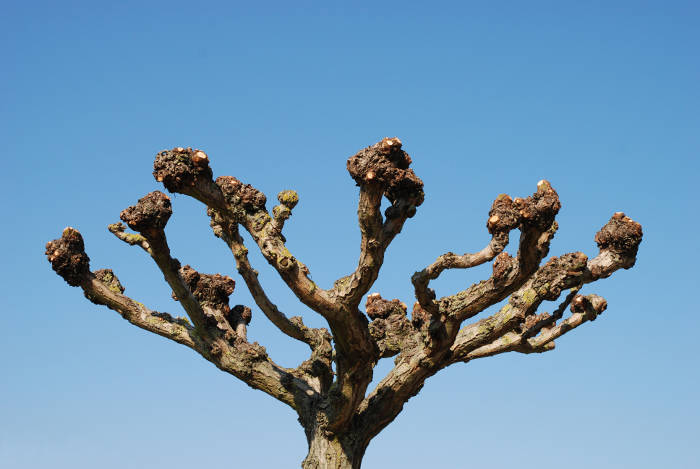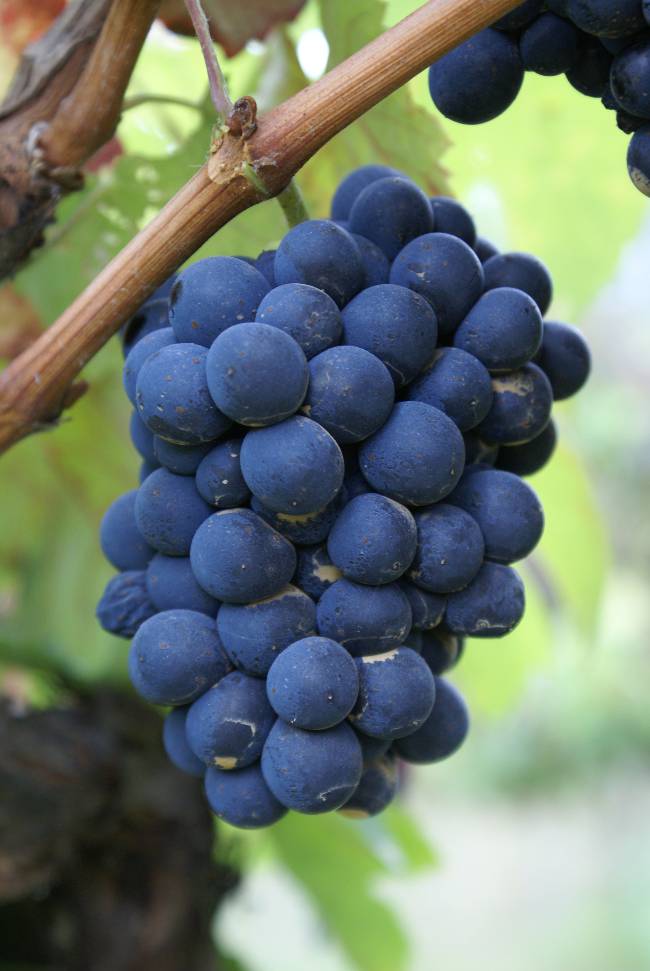A Pepper Grinder Post
God the Gardener
 There are parts of the school trip to France I took my senior year of high school that I remember vividly. It was early spring, and one of those memories is of some of the trees along the Paris streets. I say trees, but in honesty, they looked more like giant matchsticks stuck in the ground. Not surprisingly, all the lower branches had been cut completely off, but even at the top of the tree, where branches were allowed to grow, the branches had been pruned so drastically that they were nothing more than stubs. At that time of year, those trees looked pretty appalling to me, but I am guessing that they would have looked quite different a month later. I expect I would have seen a brilliant and luxuriant ball of green at the top of each "stick," instead of the stubs I saw at the time.
There are parts of the school trip to France I took my senior year of high school that I remember vividly. It was early spring, and one of those memories is of some of the trees along the Paris streets. I say trees, but in honesty, they looked more like giant matchsticks stuck in the ground. Not surprisingly, all the lower branches had been cut completely off, but even at the top of the tree, where branches were allowed to grow, the branches had been pruned so drastically that they were nothing more than stubs. At that time of year, those trees looked pretty appalling to me, but I am guessing that they would have looked quite different a month later. I expect I would have seen a brilliant and luxuriant ball of green at the top of each "stick," instead of the stubs I saw at the time.
I sometimes feel like one of those trees, with much of what I had thought important in life lying on a pile on the ground and the gardener still looking me over, searching for more branches to remove. Here is how Jesus describes God’s work:
I am the true vine and my father is the gardener. He cuts every branch off the vine that doesn’t bear fruit, and he prunes every branch that does bear fruit, so that it will bear much more. You are already clean because of the word I have spoken to you. (John 15:1-3, my translation)
In February to March in Palestine, farmers would do a radical pruning of their grape vines, which involved removing every branch from the vine that they did not expect to bear much fruit. Then around August when the vines had put forth leaves, the farmer would go around again and pinch off new shoots, so that the main fruit-bearing branches would get all the nourishment. There was no branch that escaped the farmer’s hand. It was not as though the branches which avoided being lopped off the vine were then allowed to grow as they pleased. There were only two choices: be cut off or be pruned. Sometimes it seems to me that many modern western Christians have the goal of living a good, comfortable life. We try to avoid pain for ourselves, and we tend to stay away from hurting people—almost as though we thought pain was a disease that might be contagious. According to what Jesus has said, if we aren’t being cut, we aren’t on the vine at all.
It seems natural to me that, hearing this, the fear of the disciples would be, “What if I’m one of the branches that gets chopped off instead of just pruned back?” This, I believe, is why Jesus makes the abrupt shift in verse 3 to tell his disciples that they are already clean. Jesus is making a point about the importance of bearing fruit (in the part of the passage we’re looking at now) and how it is to be done (which we’ll look at in the next post). It would be so easy (especially until we study the next 3 verses) to think that we must work to bear fruit, or we will be cut off from Jesus—this would mean that we are saved by our own works. But notice WHY Jesus says his disciples are clean: because of the word I have spoken to you. He does not say, "because you have born lots of fruit." It’s clear that Jesus expects his disciples to bear fruit, but it is just as clear that bearing fruit is not what saves them.
I was especially interested to see how three related Greek words are used in this passage. Here is the passage again, with an English transliteration of the Greek for these words:
I am the true vine and my father is the gardener. He airei every branch that doesn’t bear fruit, and he kathairei every branch that does bear fruit, so that it will bear much more. You are already katharoi because of the word I have spoken to you.
 The first two words show something that frequently happens in Greek, where a preposition is added to a word to modify its meaning. In this case, just plain airei means to lift up, take away, or remove. But when you add the kath to the beginning (the form of the preposition kata that is used before a word starting with a vowel), it softens it to mean an action that takes away part but not all of something. For a vine, this means pruning, which takes away some but not all of a branch. But now, look at the second and third transliterated word in the passage above (kathairei and katharoi, translated prunes and clean). In transliteration, they look similar, because they are from the exact same Greek root—the first is a verb and the second is an adjective. This makes sense when you think about it. What are you doing when you are cleaning something? You are taking part (the dirt) away. When used in a spiritual sense, it is sin that gets taken away.
The first two words show something that frequently happens in Greek, where a preposition is added to a word to modify its meaning. In this case, just plain airei means to lift up, take away, or remove. But when you add the kath to the beginning (the form of the preposition kata that is used before a word starting with a vowel), it softens it to mean an action that takes away part but not all of something. For a vine, this means pruning, which takes away some but not all of a branch. But now, look at the second and third transliterated word in the passage above (kathairei and katharoi, translated prunes and clean). In transliteration, they look similar, because they are from the exact same Greek root—the first is a verb and the second is an adjective. This makes sense when you think about it. What are you doing when you are cleaning something? You are taking part (the dirt) away. When used in a spiritual sense, it is sin that gets taken away.
Thus, to Jesus’s disciples and to early Christians reading this gospel in the original Greek, it would have been clear that there was word-play going on. On the one level, Jesus is telling his disciples that they are already clean, but there is also the clear implication that they are already pruned! The words that he spoke to them did it. This makes sense when you think about the disciples. Because of the words spoken by Jesus, they had embarked on a totally different life than the one they’d known up to that point—their old way of thinking and acting had been pruned away. Besides that, Jesus continued to work on them. When a little of Peter’s pride or James’ and John’s harsh judgmentalism would show itself, Jesus would pinch it off. They had been pruned, and they were still being pruned. They were true branches that were being prepared to bear fruit.
Do you want to be a true branch without fear of being chopped off the vine? Do you want to be fruitful? Prepare to be cut. Prepare to see some of the things you care about most coming under the vinedresser’s knife and falling to the ground. This is the negative part of the message. Next post, we’ll look at the positive side.
- Pepper
Posted 2013-09-22
*Photo Credits: pruned tree by Lars Sundstrom, grapes by Samuel Rosa
